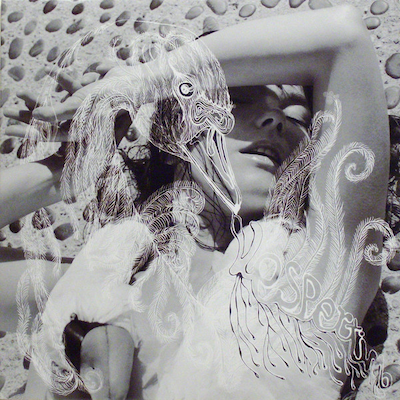6. BjörkVespertine

This is an album I strongly associate with getting the train back and forth to London from my parent’s house when I was starting to go to gigs and I remember going through a bad break up. I would listen obsessively to it on my headphones sort of silently crying to myself thinking it was the worst thing in the world that could happen. Looking back, it wasn’t the best thing to do with an album that is all about the unhealthy romanticisation of someone at the beginning of a relationship, but I have always been a masochist when it comes to my listening habits. It was the soundtrack to my misery!
I always credit this album in particular as being the album that made me want to be a record producer, probably alongside Kate Bush’s The Dreaming. Vespertine was the one album that made me see that a woman could do that. It’s one of those records that has had quite an unconscious influence on me in terms of my style of production, partly because it was something that I listened to obsessively on headphones. This record has so much minute detail and a lot of panning, which is something I find myself leaning into on my own records now. I constantly reference it.
The record spoke to me significantly as well about female sexuality. I couldn’t ever recall a woman having ever speak about the process of falling in love but in a very sexualised way. It’s about the beginnings of her relationship with Matthew Barney and it made me think of my own relationship – but I was also equally obsessed later on with the break-up album she wrote about this relationship too, Vulnicura, which also coincided with a break up I had. It was like our lives were beating in time. There’s something about it that’s expressed in a very female way – and I hate to talk about gender in essentialist terms – but she doesn’t shy away from being quite specific about the male body from her own female viewpoint. The British are quite oblique when it comes to sex. Like Kate Bush has these references when it comes to sex, but with Björk here, there was a bluntness in talking about desire and I’ve always been attracted to that.
The thing I’ve always loved about Björk too is that she is precisely who she is – there is no artifice there. It’s interesting because I worked with someone who worked on many of her records and he said she is exactly the way you see here – like she will turn up to the studio in a lampshade dress. It’s not something she does just in public – and I’m really attracted to that in musicians where there isn’t a line between their public and private lives. The Anchoress is like that too – what you see is what you get. I am book obsessed, the clothes I wear on stage are the ones I wear during the day, my make-up is always like that! The Anchoress is an alias, but it’s not a persona. When I first started making music, I spent a long time thinking I had to be someone else. I remember not telling people that I doing a PhD and I was trying to hide it – I didn’t want people to know anything about me. And yet when things started to work for me as The Anchoress, it was because I had started to translate exactly what my life was like into the songs, writing about the things I was studying and no longer trying to cover up the fact that I was bookish, geeky and a bit weird. Similarly, I didn’t want people to know that I was autistic for years. I didn’t think it would be something that people would want because I’d be made, like many neurodivergent people, to feel that I didn’t have a place in the music industry.


